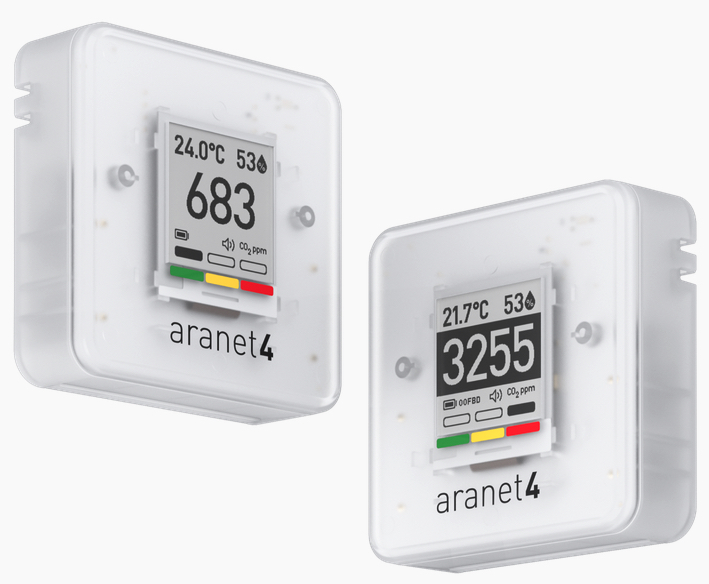Our survey of our members at the start of the Fall 2022 semester revealed a high level of concern regarding classroom transmission of COVID19, and the unilateral decision by UMD administration to not require masking in instructional settings (covered here).
Many of us have no control over the air quality and ventilation in instructional settings. There are also restrictions when requesting a change of venue to a better ventilated setting.
As sustained COVID19 transmission continues on campus, we want to provide you with a tool to assess the risk that COVID19 and other respiratory diseases could spread in your classroom or instructional setting – a carbon dioxide (CO2) monitor.
Why use a CO2 monitor?
CO2 levels indicate how much exhaled air is accumulating in an indoor space. CO2 monitors are a good proxy for room ventilation, which in turn could help inform the infection risk for COVID19. For more information, see the following resources from US CDC, the National Education Association, and the National Collaborating Centre for Environmental Health (Canada).
How can I access the CO2 monitor?
We have purchased two Aranet4 portable CO2 monitors; they are among the most reliable and accurate devices available. They can be checked out from the library (TLC Tech Desk on the 2nd floor of McKeldin) for a 24 hour period.

When will the devices be available?
Devices will be available starting Monday, November 14, 2022.
Who can access the CO2 monitors?
The monitors are available for check out to faculty, graduate student instructors, or any concerned member of the campus community. Instructions have been provided with the device and are also available here.
How can I provide feedback on the CO2 level that I have observed?
Use the monitor to note the CO2 concentration level in the classroom or other indoor setting at the beginning and at the end of a class session. Please record these readings using the Google Form here. This data will help us to advocate for improving ventilation on campus. We will aggregate the data collected so as to ensure that it cannot be linked to a specific individual or class session.
Please reach out to us at [email protected] with any questions and forward this email to any faculty, staff, and graduate student listservs you may be a part of. We want as much data as possible.
